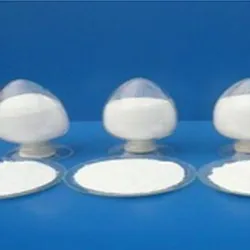
e322 emulsifier
Understanding E322 Emulsifier A Key Ingredient in Food Production
Emulsifiers play a crucial role in the food industry by stabilizing mixtures that typically do not blend well, such as oil and water. One such emulsifier that has gained much attention is E322, commonly known as lecithin. This natural emulsifier is derived primarily from soybeans, sunflowers, and eggs, and is widely used due to its ability to improve texture, enhance flavor, and prolong shelf life.
What is E322?
E322 refers to food-grade lecithin, a group of fatty substances found in plant and animal tissues. The most common sources of lecithin are soybean oil and egg yolk, but it can also be extracted from sunflower seeds. Lecithin is composed of phospholipids, which are molecules that contain both a hydrophilic (water-attracting) “head” and a hydrophobic (water-repelling) “tail.” This unique structure allows lecithin to function effectively as an emulsifier, facilitating the mixing of water-based and oil-based ingredients.
Applications of E322 in Food Products
E322 is extensively utilized in various food items, including margarine, chocolate, baked goods, salad dressings, and dairy products. In chocolate production, for example, lecithin helps to reduce viscosity, allowing for smoother processing and a finer texture. In baking, it improves dough stability and enhances the overall quality of the final product.
Moreover, E322 is not limited to food applications. It is also found in pharmaceuticals, cosmetics, and nutritional supplements. Its versatile nature makes it a popular choice among product developers aiming for quality and consistency.
Health Benefits and Nutritional Value
e322 emulsifier

Lecithin, including E322, is often praised for its potential health benefits. It serves as an excellent source of choline, an essential nutrient that supports brain health, liver function, and cellular structure. Choline is critical for the production of neurotransmitters and helps in fat metabolism, making lecithin a valuable additive not just for its emulsifying properties but also for its nutritional contributions.
Some studies suggest that lecithin may help lower cholesterol levels and improve heart health. By facilitating the transportation of fats in the bloodstream, it can prevent the accumulation of lipids in the arteries. However, further research is necessary to confirm these benefits and establish recommended intake levels.
Potential Concerns and Considerations
Despite its benefits, there are some considerations related to E322. Individuals with soy allergies should avoid lecithin derived from soybeans, as it can cause allergic reactions. Additionally, some consumers prefer to avoid genetically modified organisms (GMOs), which is a point of concern in products containing soybean-derived lecithin. Therefore, it is essential for consumers to read labels carefully to choose products that meet their dietary preferences.
When discussing food additives, it is also crucial to consider regulatory standards. E322 is approved for use in many jurisdictions, including the European Union and the United States, where it is recognized as safe for consumption.
Conclusion
E322, or lecithin, is an essential emulsifier widely used across the food and beverage industry. Its ability to blend ingredients effectively not only enhances product quality but also contributes to nutritional value. While there are potential concerns regarding allergies and GMOs, understanding E322's role can help consumers make informed choices. As the food industry continues to evolve, E322 remains a cornerstone ingredient, providing both functionality and health benefits in our everyday foods. Whether you are a manufacturer or a health-conscious consumer, recognizing the importance of emulsifiers like E322 in our diets is crucial for understanding modern food production.
-
Aluminum Hydroxide: Quality Gels & Dried Gel AntacidNewsAug.31,2025
-
Buy High-Quality Trichloroisocyanuric Acid for Sale | TCCA 90% SupplierNewsAug.30,2025
-
Pure Sodium Dichloroisocyanurate Dihydrate | Powerful DisinfectantNewsAug.29,2025
-
Industrial Chemicals: Quality & Purity for Every IndustryNewsAug.28,2025
-
Nitrile Rubber Honoring Strict Production StandardsNewsAug.22,2025
-
Aspartame Ingredients Honoring Food Safety ValuesNewsAug.22,2025
-
Fertilizer for Balanced Plant NutritionNewsAug.22,2025
Hebei Tenger Chemical Technology Co., Ltd. focuses on the chemical industry and is committed to the export service of chemical raw materials.
-

view more DiethanolisopropanolamineIn the ever-growing field of chemical solutions, diethanolisopropanolamine (DEIPA) stands out as a versatile and important compound. Due to its unique chemical structure and properties, DEIPA is of interest to various industries including construction, personal care, and agriculture. -

view more TriisopropanolamineTriisopropanolamine (TIPA) alkanol amine substance, is a kind of alcohol amine compound with amino and alcohol hydroxyl, and because of its molecules contains both amino and hydroxyl. -

view more Tetramethyl Thiuram DisulfideTetramethyl thiuram disulfide, also known as TMTD, is a white to light-yellow powder with a distinct sulfur-like odor. It is soluble in organic solvents such as benzene, acetone, and ethyl acetate, making it highly versatile for use in different formulations. TMTD is known for its excellent vulcanization acceleration properties, which makes it a key ingredient in the production of rubber products. Additionally, it acts as an effective fungicide and bactericide, making it valuable in agricultural applications. Its high purity and stability ensure consistent performance, making it a preferred choice for manufacturers across various industries.





